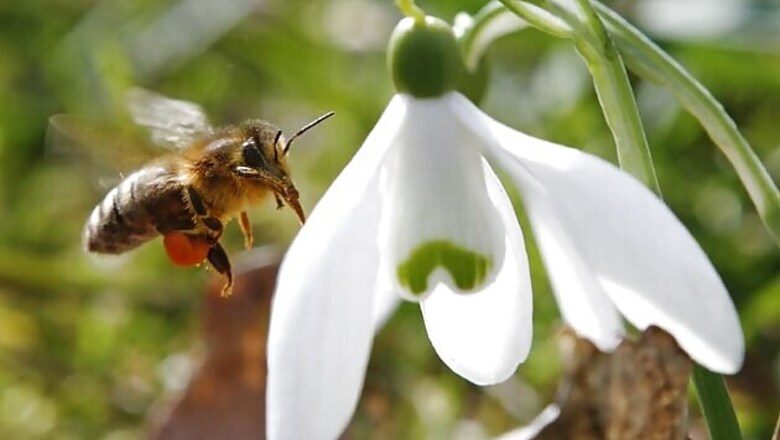
views
London: Scientists have discovered that common air pollutants found in diesel exhaust affect the ability of honeybees to recognise floral odours.
A University of Southampton research team led by Tracey Newman and Guy Poppy discovered that reactive pollutants in diesel destroyed key chemicals in the odour of oilseed flowers making them smell different to the bees, according to the research report published Thursday.
Honeybees use floral odours to help locate, identify and recognise the flowers from which they forage.
Researchers mixed eight chemicals found in the odour of oil rapeseed flowers with clean air and with air containing diesel exhaust.
Six of the eight chemicals reduced when mixed with the diesel exhaust air and two of them disappeared completely within a minute, completely changing the profile of the chemical mix.
But the odour that was mixed with the clean air was unaffected.
"Honeybees have a sensitive sense of smell and an exceptional ability to learn and memorise new odours," said Newman, a neuroscientist at the University.
"Our results suggest that diesel exhaust pollution alters the components of a synthetic floral odour blend which affects the honeybee's recognition of the odour. This could have serious detrimental effects on the number of honeybee colonies and pollination activity," Newman added.




















Comments
0 comment